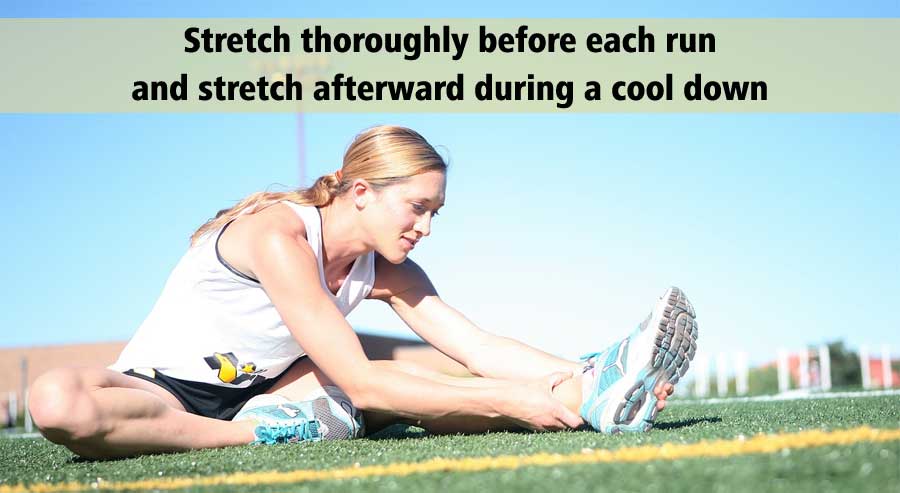Fitness Services: Sport Performance Training: Running

Running is Good for your Heart
Regular running or jogging offers many health benefits. Running can: help to build strong bones, as it is a weight bearing exercise. strengthen muscles.
Running even five to 10 minutes a day, at slow speeds (how about a 12-minute mile?) is associated with a drastically reduced risk of dying from cardiovascular disease, according to a landmark study in the Journal of the American College of Cardiology. Compared with never-runners, regular runners have half the chance of dying from heart disease. Every time you run, you decrease your resting heart rate, so your heart doesn’t need to work as hard.
A warm-up prepares your body for exercise by gradually increasing blood flow and raising core muscle temperature. The cooldown may be even more important. Stopping abruptly can cause leg cramps, nausea, dizziness, or fainting.
Running Strengthens Your Joints
Studies have shown that runners were half as likely to suffer from knee osteoarthritis compared with walkers. Surprised? Every time you pound the pavement, you stress your bones and cartilage, just like your muscles, causing them to spring back stronger. Low-impact exercises like walking, or even spinning or swimming, do not have that same bone-building benefit.
Running Is a Great Leg Workout
Your body’s biggest muscles are all in your legs, and running benefits all of them: your inner and outer thighs, your gluteus maximus, quads, hamstrings, and calves.
Running Works Your Core
Running works not only your six-pack rectus abdominis, but also the deeper core muscles including your obliques, erector spinae, and transverse abdominis, which are responsible for sucking in your gut, stabilizing your spine, and transferring power between your swinging arms and legs.
Running Burns Calories
Running requires a lot of fuel (aka calories). In fact, the average 150-pound person will burn about 12.2 calories per minute running a 10-minute mile. Not too shabby, eh? And that’s on flat terrain. Head outside where wind and hills up your effort and you can expect to burn even more.
Running Tips
- CHECK YOUR SHOE FIT: This is more important than you may imagine! Finding the right shoe and the right fit can prevent injury and keep your arches and ankles well supported. Visit a running store for a need analysis and then double check with a podiatrist or physical therapist.
- DON’T NEGLECT GOOD NUTRITION: Running requires calories, so be sure you’re getting enough! When you’re fueling your body with good quality calories (nutrient rich), you’ll have more energy to train and recover well. Staying sufficiently hydrated is also an important step toward injury prevention.
- INCORPORATE WEIGHT LIFTING: While running may be your first love, weight training will strengthen your muscles, which is a key component of injury prevention. When you hit the gym, remember that it’s not all about your legs. Focus on full body strength training with a primary emphasis on your core.
Get Fit, Mobile, Flexible, Strong and Healthy the Right Way
Luke Connell Personal Fitness Trainers are CSCS Certified. You are ensured that no matter your fitness level, age or life stage, you will work with a personal fitness trainer professional who has the formal education and background to perform a mobility assessment and then design a strength and conditioning training program specifically designed for you. When exercise is performed correctly, amazing results occur. Done incorrectly, you can suffer disastrous consequences, especially in current exercise trends like CrossFit, Insanity, indoor cycling, Zumba®, and yoga.
